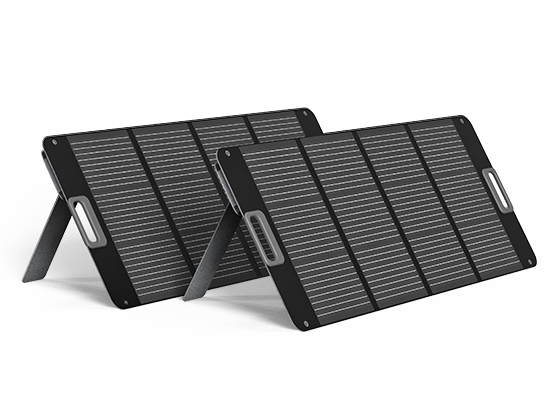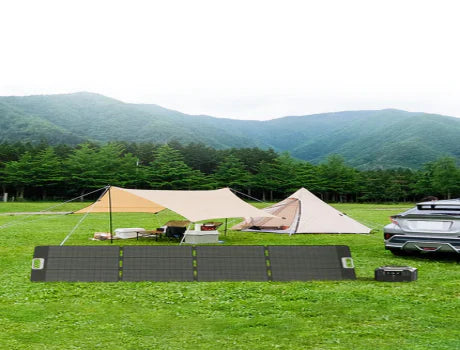
Table of Contents
RV travel is a unique way to relax and relieve the pressures of daily life. While enjoying the scenic views along your trip, the last thing you want is for a power shortage to disrupt your journey. A proper small RV generator will be your reliable source of power on the road.
This article will introduce you three essential RV generators for RV living—whether you are a seasoned traveler or a first-timer, a trustworthy power source is key to ensuring a smooth journey.

Can a Small Generator Power Your RV Needs
When planning your RV trip, ensuring a reliable power source is crucial. You might wonder whether a small generator is suitable for your RV. The answer largely depends on your specific power needs and the size of your RV. Small generators, typically ranging from 1000 to 3000 watts, are an excellent choice for smaller RVs or travelers who mainly need to power basic devices. Next, through some examples, you can gain insight into the specific power requirements of an RV.
Understanding RV Power Requirements
It's important to have a clear understanding of your RV's power needs. By making calculations based on specific data, you can know exactly how much power you consume during your trip. For example, you can list the power of all commonly used devices (such as lights, refrigerators, air conditioners, chargers, etc.) and estimate total demand by referring to their wattage and daily hours of use.
You can check out our article to learn about the specific power consumption and expenses of RV living to help you determine your specific power needs. Here, we briefly cite some examples of electrical use:
Air Conditioner: 1500-2000 watts (with a higher surge at startup)
Microwave: 1000 watts
Refrigerator: 100-200 watts
Lights and Small Electronics: 50-100 watts each
If you have a compact RV with a single air conditioner and minimal additional appliances, a small generator, such as a 2000-watt model, might be adequate. However, you need to carefully manage your electricity usage and avoid running high-powered devices such as air conditioners and microwaves at the same time.

Types of Generators for RV Camping
When choosing a small RV generator, you will come across many different options, each with its own drawbacks, so it is important to understand them thoroughly. Here are some you can refer to:
|
Type |
Fuel |
Advantages |
Disadvantages |
|
Gasoline Generator |
Gasoline |
Low cost, easily available |
Noisy, short fuel storage life |
|
Propane Generator |
Propane |
Easy to store, clean burning |
Higher initial cost |
|
Dual Fuel Generator |
Gasoline/Propane |
High flexibility, adapts to different fuels |
Complex equipment, maintenance can be tricky |
|
Inverter Generator |
Gasoline/Propane |
Quiet, clean power, suitable for electronics |
Lower power output, higher cost |
|
Solar Generator |
Solar energy |
Eco-friendly, renewable, silent, no emissions, low maintenance |
Weather-dependent, high initial cost |
Gasoline generators: Use gasoline as fuel, suitable for short trips, the price is relatively low, but the noise may be larger.
Propane generators: Use propane, easy storage, suitable for long periods of use, and burn cleaner.
Dual fuel generator: Can run on both gasoline and propane, providing more flexibility for different scenarios.
Inverter generator: A type of technology that can be powered by gasoline or propane and provides a steady supply of clean electricity, especially suitable for running devices such as computers and cell phones.
Ampace Solar Generator: The top choice for RV living, this solar generator delivers continuous, cost-free power using portable solar panels. It captures solar energy, converting it into electricity through its internal lithium-ion battery and inverter system. With AC and USB output ports, it effortlessly powers multiple devices, keeping your RV lifestyle connected and convenie

Best Solar Generator for RV
Ampace solar generators provide an efficient, convenient, and eco-friendly solution for outdoor adventurers, RV enthusiasts, and anyone seeking off-grid power options. To cater to diverse needs, Ampace has meticulously designed three exciting solar generator models specifically for RV users- Andes 1500, Andes 600 Pro, Andes 300.
These generators ensure a stable supply of clean, sustainable energy during your travels, allowing you to enjoy the freedom of the open road without relying on gasoline.
|
|
 |
 |
 |
|
Capacity |
1462Wh |
584Wh |
266Wh |
|
AC output |
2400W (Surge 3600W) |
600W (Surge 1800W) |
300W (Surge 450W) |
|
Recharging Time |
55mins |
1hour (0-80%) |
45mins (0-80%) |
|
AC Outlets |
4 |
2 |
2 |
|
USB Output Ports |
USB-A (x4) USB-C (x2) |
USB-A (x2) USB-C (x2) |
USB-A (x2) USB-C (x1) |
|
Cell Chemistry |
LiFePO4 |
LiFePO4 |
LiFePO4 |
|
Ideal Usage |
long RV trips, microwaves, AC, fridges, TVs |
short RV trips, lights, small fridges, device charging |
backup power, phones, tablets, small devices |
Ampace Andes 1500- Best Solar Generator for full time rv living
The Andes 1500 features a large 1462Wh battery capacity and a 2400W output power (surge 3600W), enabling it to supply power to most appliances in your RV. With 13 output ports, it easily meets the demand for running multiple devices simultaneously. Paired with 600W solar panels for RV campers, it can achieve multiple charging cycles in a single day.

Ampace Andes 600 Pro- Best Portable power station for RV
The Andes 600 Pro has a capacity of 584Wh and a rated power of 600W (Surge 1800W)
, making it sufficient to power some high-power appliances. It is suitable for short RV trips, as it can provide electricity for lights, small fridges, and charge multiple devices. Additionally, its lightweight design allows you to carry it with you easily.

Ampace Andes 300- Best Portable power station for Camper
Andes 300 is a portable power station that’s easy to carry with you. It has a 266Wh capacity and a 300W (Surge 450W) rated power, weighing just 8.2 lbs (3.72 kg). It’s perfect for charging small devices like phones and laptops, making it ideal for outdoor travel and camping.

FAQ
Why is living in an RV illegal?
Living in an RV full-time may face restrictions due to zoning laws, health and safety concerns, and tax or insurance complications. Before heading to your destination, it’s essential to thoroughly check local RV regulations.
What are long-term RV parks?
Long-term RV parks are campgrounds designed for extended stays, offering full hookups and amenities for a semi-permanent living setup.
What are quiet generators for RVs?
Quiet generators for RVs provide power without excessive noise; Ampace power stations, with a near-silent 30dB sleep mode, ensure peaceful operation ideal for campsites and sensitive electronics.
What is full-time RV living?
Full-time RV living means making an RV your primary home, offering freedom and flexibility but requiring careful planning for parking and utilities.








